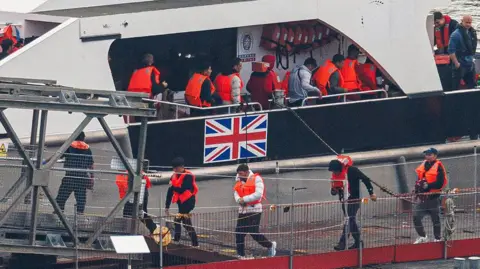What impact could the migrant deal have in Kent?
 Getty Images
Getty ImagesTalks between the UK and France could lead to a new migration agreement, with potential implications for Kent.
Under the proposed agreement, illegal migrants who cross the Channel in small boats could be returned to France, in exchange for the UK government accepting legal migrants seeking family reunification.
Described by the French interior ministry as a "one-for-one" pilot scheme, the proposal is aimed at tackling smuggling networks and reducing the number of dangerous crossings.
While the finer details of the plan are still being negotiated, any such agreement could have a notable impact on Kent—the county where many of these crossings come ashore.
While the proposed plan could allow for more orderly and managed migration, it may still bring implications for local authorities and services, depending on where those individuals are settled.
If any are housed in Kent or neighbouring areas, councils would likely need to ensure adequate support is in place, including housing, education, and community services.
The discussions come against the backdrop of recent changes in government policy.
Labour, which took office last year, scrapped the previous Conservative administration's plan to deport some asylum seekers to Rwanda - a move the Conservatives argue has removed a key deterrent against illegal migration.
Transport minister Lilian Greenwood confirmed that talks with France were ongoing but did not comment on the specifics of any removals deal.
For residents in Kent, where immigration has been a prominent issue in local and national debates, the effectiveness of any new agreement will be closely watched.
Whether the pilot scheme leads to fewer crossings or improved processing, it could shape public perceptions ahead of future elections.
There remain several unanswered questions. How many migrants would be included in the scheme? What legal frameworks would support the returns? And will the pilot be enough to deter people from attempting the crossing?
The returns deal is unlikely to ease pressure on Kent County Council when it comes to unaccompanied asylum seeker children, who are placed into their care upon arrival in Dover.
For now, Kent continues to play a central role in the UK's efforts to manage Channel migration - at the intersection of policy, politics and the day-to-day realities of a complex and evolving situation.
Follow BBC Kent on Facebook, on X and on Instagram. Send your story ideas to [email protected] or WhatsApp us on 08081 002250.
